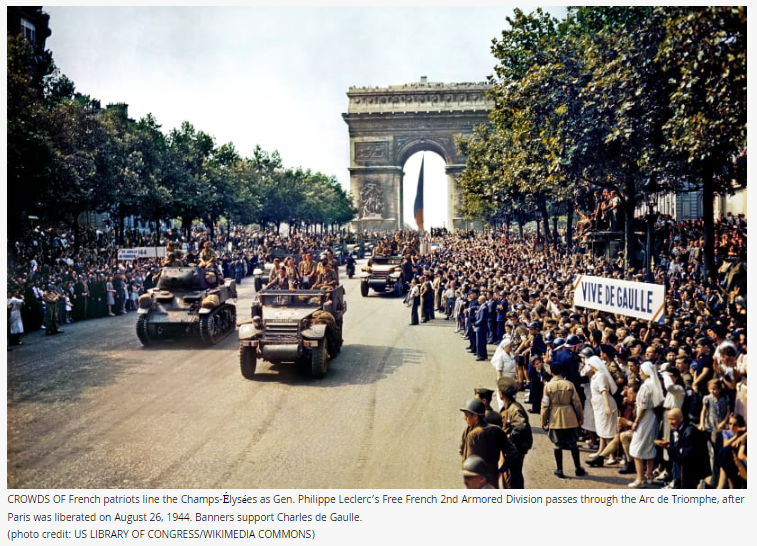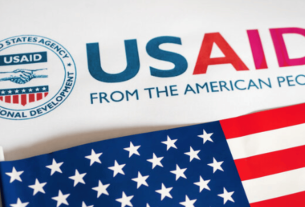On August 25, 1944, Charles de Gaulle delivered an emotional address to a large crowd at the Hôtel de Ville. Paris, he declared, had been “liberated by itself, liberated by its people with the help of the armies of France, with the help and assistance of the whole of France, of that France which fights, of the only France, of the true France, of the eternal France.”
Within months, however, the occupiers rationed food, malnutrition was rife, dinners that had been “observed with quasi-religious reverence” by Parisian families were reduced to “pit stops,” and coal shortages kept apartments bitterly cold.
Meanwhile, many French citizens were embracing the collaborationist, authoritarian Vichy government, led by octogenarian Marshal Philippe Pétain, a hero of World War I who advised his countrymen to accept their punishment and get on with their lives. But under the guise of bringing the nation together, Bishop demonstrates, he “shrank the definition of Frenchness,” excluding communists, Freemasons, foreigners, and Jews.
Many French citizens, Bishop points out, showed little curiosity about the fate of Jews. Far fewer went as far as Robert Brasillach, the fascist editor of Je suis partout. Every week, his paper revealed the names of Jews who had altered their identities and gone into hiding.
Paris 1944 is at its best when Bishop addresses how – and by whom – the city was liberated. American and British generals, he indicates, saw Paris as an “ink spot on the map,” with little strategic significance. Liberating the city would waste time, require house-to-house skirmishes, and saddle the Allies with feeding millions of hungry residents. While resistance leaders wanted Allied armies “to go hell for leather for Paris,” de Gaulle insisted that the city be seen as having liberated itself, with Free French forces leading the way. Gen. Dietrich von Choltitz, commander of German forces in Paris, knew he had neither the means nor the manpower to carry out Hitler’s order to reduce Paris to “a field of ruins,” feared either a summons from Berlin or post-war prosecution and sought to square the circle.
- PARIS 1944: OCCUPATION, RESISTANCE, LIBERATION
- By Patrick Bishop
- Pegasus Books
- 374 pages; $35



